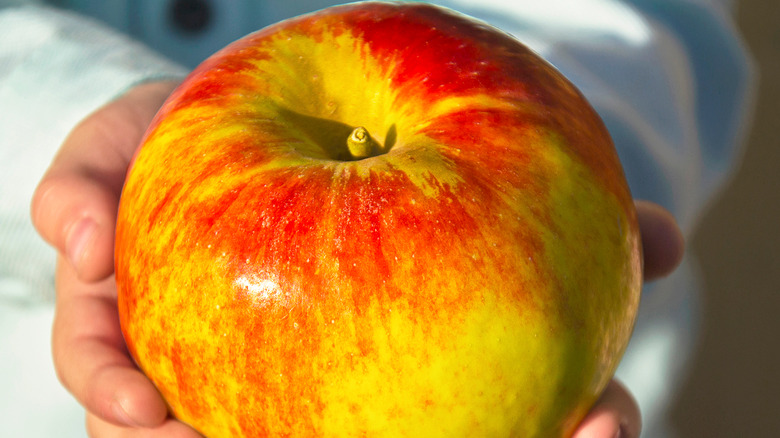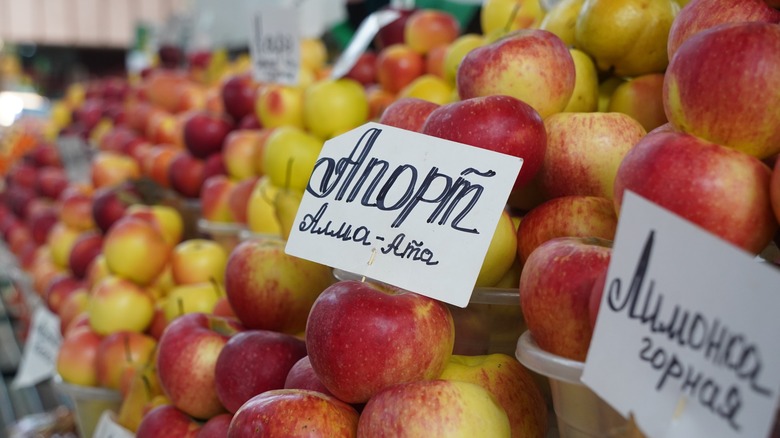Kazakhstan's Large Apple Variety You Should Know
With autumn upon us, apple season is finally here. You may find yourself planning a trip to an orchard, perusing grocery store aisles for new varieties, or simply stocking up on your go-to apple for fresh fall snacks. If you're an apple fan located in the U.S., you're in luck as the country is the second largest apple producer in the world, after China, according to Atlas Big. The U.S. pumps out many coveted varieties from the sweet, crunchy Honeycrisp to the tart Granny Smith. But, did you know the apples that we purchase at our local stores are most likely descendants of those that still flourish in Central Asia (via BBC)?
Apples were first cultivated in the Middle East over 4,000 years ago (via Pick Your Own) and we have come a long way with creating new varieties of apples to satisfy the modern palate since then. However, the full scope of the apple's genetic potential has not been fully examined yet, and there is more information to be found within Kazakstan's forests, namely by studying the Aport apple.
The ancient Aport
Aports are widely considered to be one of the oldest varieties of apples in the world (via Specialty Produce). They are primarily grown in Kazakhstan, where they are well known and prized for their larger-than-average size. Under their slightly thick, waxy skin, is crisp yellow flesh. These apples are beloved for their sweet, slightly tart flavor with notes of honey. Since they have such a unique flavor, they are the perfect apples to snack on since the flavor is satisfying on its own. But, they are also the perfect addition to any apple-based desserts or pastries.
Although this ancient apple is treasured for its flavor and size, it's a bit of a finicky crop to grow. According to BBC, Aport trees only produce this satisfying fruit if they are planted at an altitude between about 2,600 and 4,000 feet. Additionally, over the years, as Kazakhstan was developing and growing in population, the apples stopped being produced as frequently since their trees have irregular fruiting and slow growth. The Aport orchards were replaced with varieties that could produce more fruit and faster, causing this particular variety to nearly become extinct.
However, in the modern day, Aports have had a revival, as many Kazakhs are realizing the potential of their local apples. Slowly, there has been more of the crop popping up at local markets in the country.

